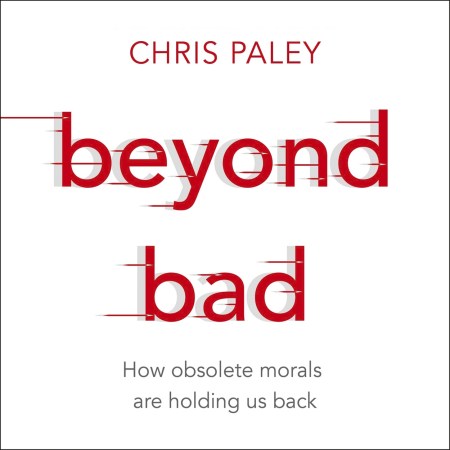Beyond Bad
On sale
11th March 2021
Price: £19.99
Genre
‘Brilliantly unillusioned thinking… It could hardly be more necessary in these all-too-moralistic times’ – James Marriott, THE TIMES
‘There is a serious challenge here to received ways of thinking for the lay public and professional moral philosophers alike.’ John P Burgess, John N Woodhull Professor of Philosophy, Princeton University
Scientific research has achieved what thousands of years of philosophising failed to do: explain why we have morals and how they work. The answers are surprising and frequently disturbing.
Morals have held empires together, kept soldiers marching under fire, fed the hungry, passed laws, built walls, welcomed immigrants, destroyed careers and governed our sex lives. But what if morality’s all meaningless rubbish, a malfunctioning relic of our evolutionary past?
This is the provocative argument that Chris makes. This isn’t an attack on one set of moral codes or one way of thinking about ethics: it’s a call for abolishing the whole caboodle.
He uses evolutionary psychology to show how and why morality emerged: they enabled our forebears to survive and prosper in tribal groups. Today, our morals constrain us, bias us, and push us in the wrong direction.
The biggest challenges our species faces, whether global warming, nuclear proliferation or the rise of the robots, are pan-human. These challenges are beyond what our moral minds were designed to cope with. You can’t build smartphones with stone-age axes, and you can’t solve modern humanity’s problems with tools that are designed to create primitive, competitive groups.
From Chris Paley, author of the ‘extraordinary’, ‘startling’ and ‘thought-provoking’ Unthink, comes Beyond Bad, which shows morals hinder us from achieving what we want to achieve. Beyond Bad is the book that ‘does for morals what Dawkins did for God’.
(P) 2021 Hodder & Stoughton Ltd
‘There is a serious challenge here to received ways of thinking for the lay public and professional moral philosophers alike.’ John P Burgess, John N Woodhull Professor of Philosophy, Princeton University
Scientific research has achieved what thousands of years of philosophising failed to do: explain why we have morals and how they work. The answers are surprising and frequently disturbing.
Morals have held empires together, kept soldiers marching under fire, fed the hungry, passed laws, built walls, welcomed immigrants, destroyed careers and governed our sex lives. But what if morality’s all meaningless rubbish, a malfunctioning relic of our evolutionary past?
This is the provocative argument that Chris makes. This isn’t an attack on one set of moral codes or one way of thinking about ethics: it’s a call for abolishing the whole caboodle.
He uses evolutionary psychology to show how and why morality emerged: they enabled our forebears to survive and prosper in tribal groups. Today, our morals constrain us, bias us, and push us in the wrong direction.
The biggest challenges our species faces, whether global warming, nuclear proliferation or the rise of the robots, are pan-human. These challenges are beyond what our moral minds were designed to cope with. You can’t build smartphones with stone-age axes, and you can’t solve modern humanity’s problems with tools that are designed to create primitive, competitive groups.
From Chris Paley, author of the ‘extraordinary’, ‘startling’ and ‘thought-provoking’ Unthink, comes Beyond Bad, which shows morals hinder us from achieving what we want to achieve. Beyond Bad is the book that ‘does for morals what Dawkins did for God’.
(P) 2021 Hodder & Stoughton Ltd
Newsletter Signup
By clicking ‘Sign Up,’ I acknowledge that I have read and agree to Hachette Book Group’s Privacy Policy and Terms of Use

